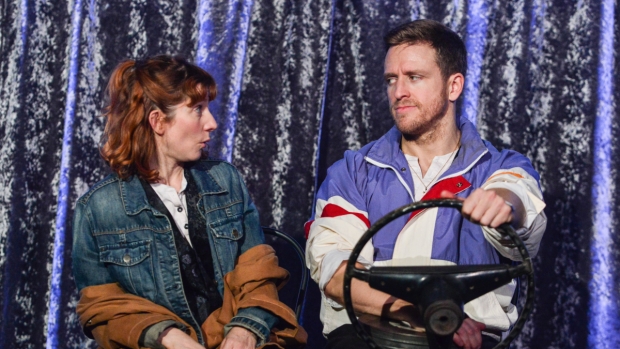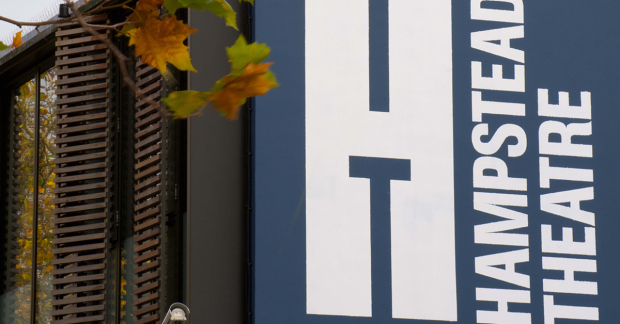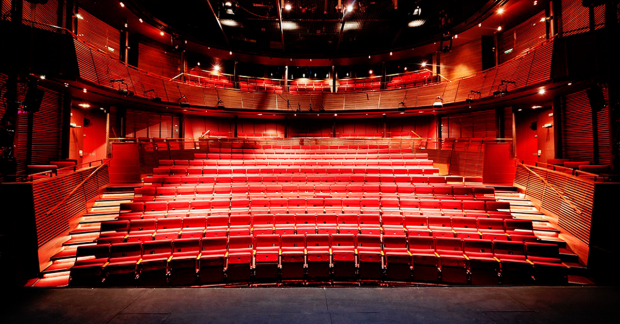”The Art of Illusion” at Hampstead Theatre – review

© Robert Day
If atmosphere, quirkiness and a rock solid belief in the power of storytelling were enough by themselves to carry a full-length piece of theatre, then Hampstead’s first offering of the year in the Downstairs space would be an unabashed winner. Unfortunately, Alexis Michalik’s award-winning 2014 Le Cercle des Illusionistes, re-titled The Art of Illusion for English-speaking audiences and staged with considerable verve and invention by director Tom Jackson Greaves, proves too episodic and elliptical to really connect with. It fails to make anything especially gripping out of its parallel stories.
The Gallic whimsy factor is sky high from the get-go as orphaned pickpocket December meets pregnant April (yes, those really are their names) in a Parisian restaurant to return her bag which he claims to have found on the Metro but which he in fact stole. Things aren’t quite as they seem though, and before long, April and December have fallen down a rabbit hole of historical intrigue involving nineteenth-century illusionist, magician and watchmaker Jean-Eugène Robert-Houdin, and the creation of, amongst other things, the original kinetograph, an early example of the motion picture camera. Fusing together a twisty off-beat romance with a fairly niche real-life history is certainly original, and Brian Martin and Bettrys Jones are enormously engaging as the improbably named central pair.
However, a bewildering array of superfluous plot lines and supporting characters, plus the breakneck pace of much of the staging tends to make the script itself feel ponderous, despite translator Waleed Akhtar’s frequently enjoyable attempts to fill it with comedy. A lot of the dialogue is snappy and relatable: a running joke about a lot of the modern action inconveniently taking place against the background of the French football team’s involvement in the 1984 World Cup is particularly fun.
Jackson Greaves displays an equally sterling commitment to investing the piece with a rambunctious energy, having the cast leap, caper and sashay all over the limited performance space, frequently coming within a hair’s breadth of audience members. At first, the immediacy is exciting, particularly when it comes to seeing magic tricks at very close quarters, and the slightly self-conscious eccentricity of the interconnected stories is charming, but both become tiresome after a hundred minutes of impenetrable fancifulness, despite the efforts of the game, talented company of six.
Simon Kenny’s murky but opulent set is lovely though, as are the lighting and sound designs (Matt Haskins and Yvonne Gilbert respectively) which conjure up a sense of a theatrical, slightly seedy Paris through the ages. Jackson Greaves demonstrates a genuine delight in the possibilities of theatre, employing shadow play, mime, dance and constant whirling movement to varying degrees of success.
There are moments when it feels as though choreographing multiple bits of stage business and ensuring that the sleight-of-hand magic comes off flawlessly, has left too little time for characterisations to be explored. The dramatis personae is pretty vast, more like the cast of a novel or a film than a play, so many of these figures are essentially only sketches but it becomes confusing given the whiplash speed at which the actors are required to swap roles, usually with a minimum of costume change, and there’s only so much confusion one can take before a certain exhausted ennui seeps in.













